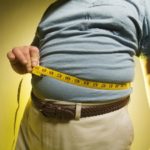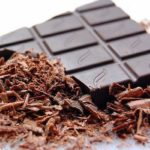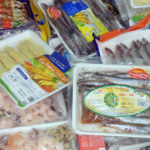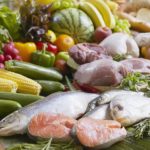Unconcentrated eating
Eating absentmindedly, such as while watching TV or working on the computer, often leads to mindless eating, resulting in consuming excessive calories without realizing it. This behavior also diminishes the ability to accurately perceive the body’s fullness sensation.
According to nutritionist Destini Moody, a study found that people who eat while watching TV or eating on the go can consume up to 5 times more compared to when they eat without distraction. Eating without concentration hinders the brain’s effectiveness in signaling the stomach that you have eaten enough, leading to overeating. This not only triggers hunger pangs but also increases the appetite, resulting in excessive energy intake and ultimately, abdominal fat accumulation.
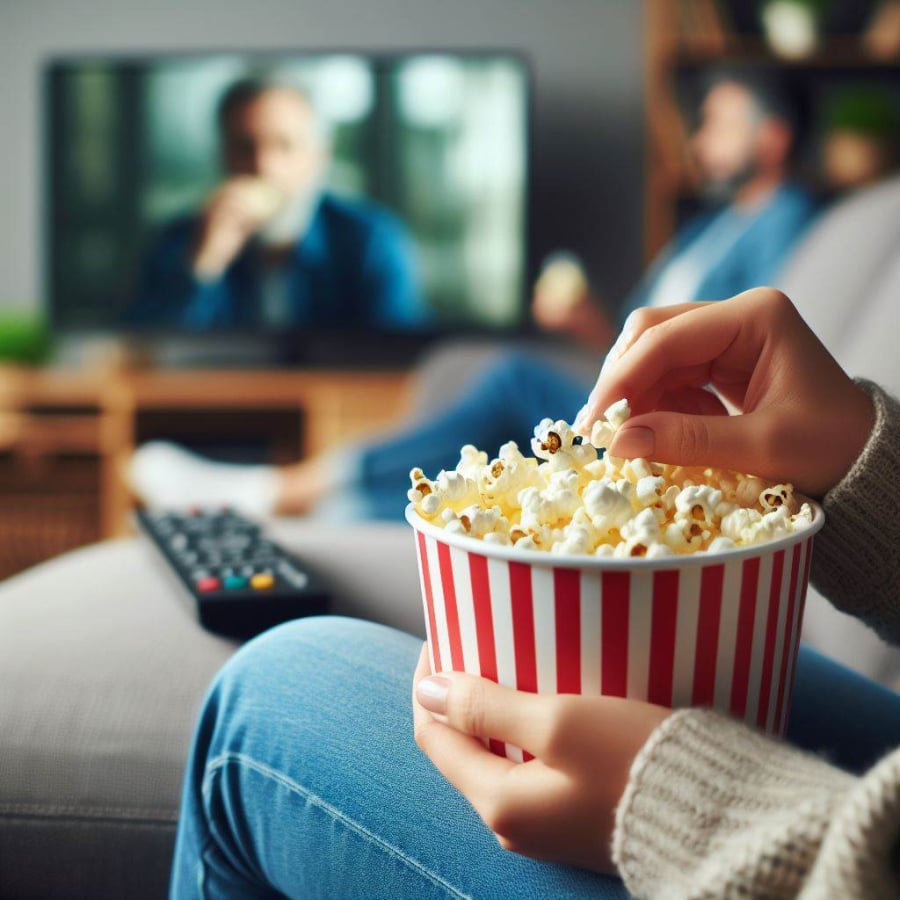
Unfocused eating can lead to excessive calorie intake
Inadequate water intake
If not getting enough water, the body’s calorie-burning process also slows down. Destini Moody points out, “Many studies have shown that we often mistake thirst for hunger. This can lead us to snack or eat more than necessary when all we need is water. Ensuring adequate hydration helps regulate unnecessary hunger pangs, helping us avoid unwanted calorie intake,” says Moody.

If not getting enough water, the body’s calorie-burning process also slows down
Overeating healthy foods
Eating large quantities, even when opting for nutritious foods, can still lead to excess energy accumulation and weight gain. Therefore, adjusting the amount of food consumed is an important factor in achieving healthy weight loss. “Nuts, seeds, and avocados are rich in antioxidants, nutrients, and beneficial unsaturated fats for cardiovascular health, and they are an integral part of a healthy diet. However, they are also calorically dense, so it is easy to consume more calories than necessary,” Moody emphasizes the need to moderate the consumption of these healthful foods, while adhering to the basic principle that calorie intake should be less than calorie burn.

Eating large quantities, even when opting for nutritious foods, can still lead to excess energy accumulation and weight gain
Guilt-free eating
One of the main reasons for rapid weight gain is not having healthy meals prepared in advance. Eating unplanned can lead to loss of control over food intake and easy selection of unhealthy options. On the other hand, planning the menu for the next day and eating at the right time helps establish a regular eating pattern, supporting you in maintaining a healthy diet and getting closer to your weight loss goals.
“When you feel hungry and there is no readily available food, you tend to choose quick and convenient foods that are not good for your health. Planning your meals helps eliminate these poor choices and supports weight loss because you have complete control over the quantity and quality of the food you consume,” advises the expert.
What You Need to Know About Chocolate
Despite its tasty flavor, there are long-standing concerns that eating too much chocolate may lead to weight gain and tooth decay. Despite this, chocolate continues to be a popular indulgence during holidays and a meaningful gift to share with loved ones. It is also a popular ingredient for beauty treatments.
Creating a Sustainable Weight Loss Plan without Rigid Dieting
If dropping the pounds has become a challenge, small changes to your dietary habits can be a big help. Try incorporating more fiber-rich, nutrient-dense foods such as fruits, vegetables, and other foods that can boost your weight loss goals. Read on to learn more about easy approaches to successful weight loss through healthier eating.
























